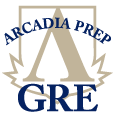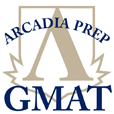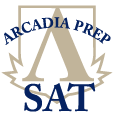Imagine that we stand on any ordinary seaside pier, and watch the waves ... ...
A scientist makes new observations and learns that water waves of shorter wavelengths spread in all directions not only because they scatter off piers but also because they interact with previously scattered short water waves. Drawing upon the analogy between water waves and light waves, we might hypothesize which of the following?
(A) Blue light waves act like ripples that other blue light waves meet and scatter from.
(B) ...
(C) ...
(D) ...
(E) ...
*This question is included in
Nova Reading - Extra Reading:
Replies to This Thread: 0
|
----
Posted: 05/28/2012 15:23
The question does not say conclude, it says hypothesize or guess? Why can' t we make a guess? Scientist do it all the time and probably would do so with this new information. That does not mean that they are concluding anything. If you were looking for this answer, asking what you would conclude would be a better question.
Replies to This Thread: 0
|
----
Posted: 08/03/2012 00:56
Agreed, there is enough evidence to hypothesize that they will act similarly. Not enough to conclude a theory, but enough to hypothesize one.
Replies to This Thread: 0
|
----
Posted: 01/06/2013 16:16
Agree, the question needs to be reworded, hypothesize is to make an educated guess
Replies to This Thread: 0
|
----
Posted: 02/18/2013 07:51
Yes, I agree as well.
Replies to This Thread: 0
|
----
Posted: 03/27/2013 22:50
So do I
Replies to This Thread: 0
|
----
Imagine that we stand on any ordinary seaside pier, and watch the waves ... ...
Posted: 02/19/2014 14:40
I agree with everyone else. Can we get an answer on this? A hypothesis is an educated guess. I don't see why we can't make a hypothesis/educated guess about the blue light waves given the information in the article. Like everyone else said, it's not a theory anyone has tried to prove though research. It's a hypothesis.









